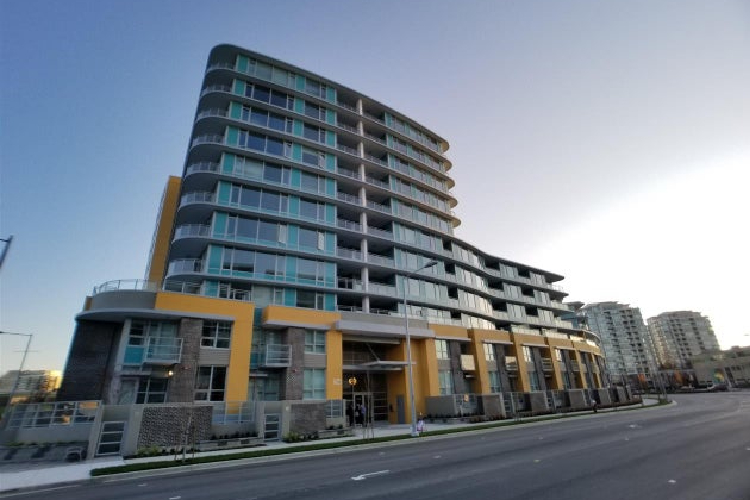Creating a Comprehensive Property Management Plan
5 min read
Creating a comprehensive property management vancouver plan is a critical part of managing a property effectively. It requires careful consideration and planning to ensure the property is maintained and managed in the most effective way possible. The plan should include a detailed assessment of the property’s existing condition, any areas of improvement, and the resources needed to ensure the property is properly maintained and managed. Additionally, a comprehensive property management plan should include measures for safeguarding the property from potential threats, such as theft, vandalism, and natural disasters.
Establishing Goals and Objectives for Property Management
The first step to creating a comprehensive property management vancouver plan is to establish clear and achievable goals and objectives. This should include defining the overall purpose of the property management, such as increasing rental income, increasing occupancy rates, reducing maintenance costs, improving tenant satisfaction, and increasing the overall value of the property. It should also include short-term and long-term goals, such as increasing rental income by a certain percentage within a certain time frame or reducing maintenance costs by a certain percentage within a certain time frame. Additionally, any goals should be measurable and achievable, so that the property owners or managers can track the progress and adjust their strategies as needed.

Developing an Emergency Response Plan for Property Management
A well-developed emergency response plan is essential for any property management vancouver plan. This plan should include steps for responding to any emergency situation, such as a fire, flood, or medical emergency. It should include the contact information for emergency services, such as the fire department, police department, and ambulance services, as well as contact information for any other necessary parties, such as the property owner, property manager, and tenants. Additionally, it should include clear instructions for each person involved in the emergency response, such as the steps for evacuating the property, shutting off the water and electricity, and contacting emergency services.
Developing an Advertising and Marketing Plan for Property Management
Creating a comprehensive property management vancouver plan is a vital part of running a successful property management business. The key elements of a comprehensive property management plan include developing an advertising and marketing plan, establishing a budget, creating a maintenance and repair program, and creating a tenant management plan.
The advertising and marketing plan should be comprehensive and should include a variety of strategies such as digital marketing, print advertising, social media marketing, and direct mail campaigns. The goal of the advertising and marketing plan should be to reach potential tenants and to create a positive image of the property and its management. Additionally, the plan should include strategies for finding tenants, such as open houses, online advertising, and referrals from existing tenants.
When creating the advertising and marketing plan for property management, it is important to consider the goals and needs of the property. For example, if the property is a rental property, the advertising and marketing plan should focus on finding tenants, such as by highlighting the amenities and features of the property. If the property is a commercial property, the advertising and marketing plan should focus on attracting businesses to the property, such as by highlighting the location and accessibility of the property. Additionally, it is important to consider the target audience for the property, as this will help determine which strategies will be most effective.
Implementing a Tenant Screening Process for Property Management
In order to ensure that only responsible and reliable tenants are living on the property, it is important to implement a tenant screening process. This should include a thorough background check, a credit check, and a review of the tenant’s rental history. Additionally, the tenant screening process should include any other necessary steps, such as a review of the tenant’s employment history or references. By implementing a thorough tenant screening process, the property owners or managers can ensure that only responsible and reliable tenants are living on the property.
Drafting a Lease Agreement and Rental Contracts for Property Management
Creating a comprehensive property management plan is essential for any property owner who wants to maximize their returns while minimizing their risks. Whether you’re managing a single-family home, an apartment complex, a commercial property, or a combination of properties, having a plan in place that outlines the responsibilities of both the owner and the tenant is essential.
The first step in creating a comprehensive property management plan is to draft a lease agreement and rental contracts. A lease agreement is a legally binding document that outlines the terms of the tenancy between the owner and the tenant. It should include the length of the tenancy, the rental payment amounts and due dates, the security deposit, rules for maintenance and upkeep, and other items that are specific to the property.
The rental contract should also include any special provisions or restrictions that apply to the tenant. These might include rules about pets, smoking, loud music, or other activities that might create a nuisance or interfere with the tenant’s neighbors. It should also specify how the tenant can terminate the lease agreement and the process for managing any disputes between the owner and the tenant.
Establishing a System for Property Inspections and Reports
Creating a comprehensive property management plan should begin with establishing a system for property inspections and reports. Inspections should be conducted in accordance with the relevant state and local laws and regulations, as well as any applicable insurance requirements. Furthermore, all relevant safety and fire codes should be taken into consideration when conducting the inspection. In addition to conducting regular property inspections, it is important to have a system in place for creating and submitting reports. This person or team should be familiar with all relevant regulations and be able to identify any potential issues or problems. Additionally, they should have the necessary training and experience to conduct the inspections and create and submit the reports.
Conclusion
Creating a comprehensive property management plan is essential to ensuring that all of a property’s operations are both efficient and effective. A well-crafted plan can help a property manager to avoid common pitfalls and to make informed strategic decisions that can benefit the property in the long run. By incorporating best practices and utilizing the latest technologies, a property manager can ensure that their property is well managed and well maintained. As the property manager, it is important to be aware of the ever-changing industry trends and to stay ahead of the curve. With a comprehensive plan in place, a property manager can be confident that their property is in the best hands possible.

I am passionate blogger, I have started at the smallest possible stage in the publishing industry, our humble beginnings keeps all our internal stakeholders in check. Hard work and an undying passion for delivering the best quality of content possible are what drives us to take on publishing every single day, and we are not about to quit on this rewarding ethic.





